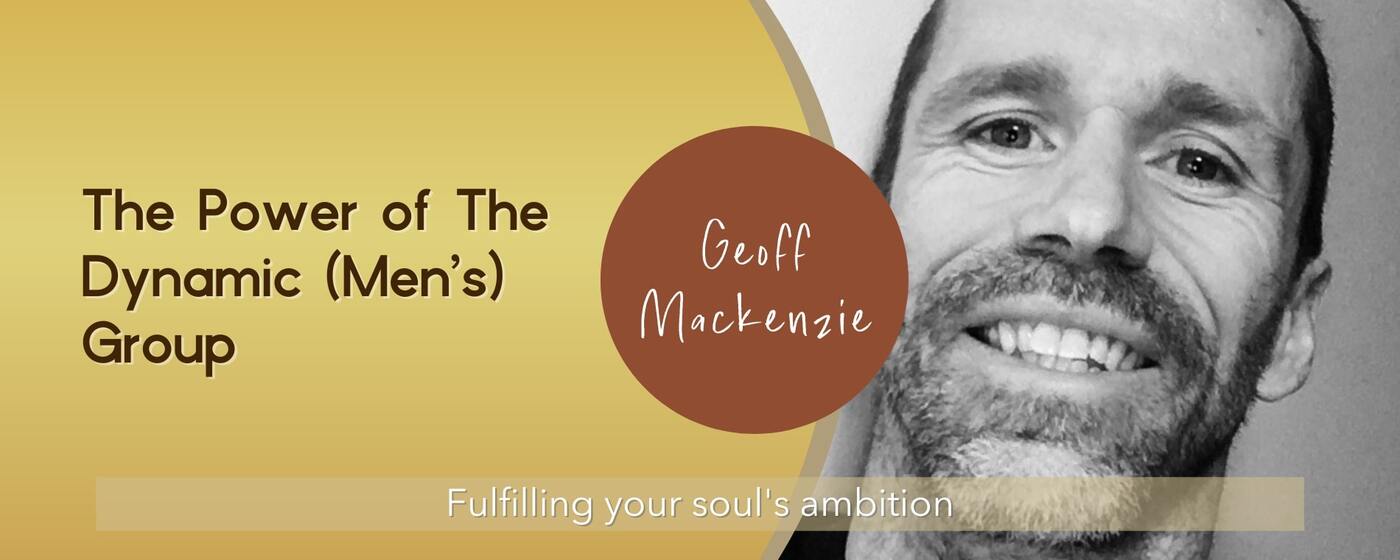
The Power of The (Men’s) Group
One of the key features of the YHC program that called me to enroll is the Dynamic Group.
As YHC/Body Thrive members, and coaches in training, we are part of a dynamic group of our peers. And what are we learning to do? To evolve our own identities and habits. And to form and lead a dynamic group of our own.
This feature of YHC called to me so strongly because it resonates powerfully with the experiences I have had with a local men’s group here in Vancouver, BC. Joining the Samurai Brotherhood more than four years ago changed my life immensely, and for the good.
To thrive, Men need their Brothers: older, younger and of similar age.
Research suggests that, by their thirties, far too many modern men rely on their spouse or romantic partner to be their confidante and emotional support. Whereas women are arguably much better at opening up to each other rapidly and maintaining friend connections over a lifetime, we men can take an ice age to create new bonds in adulthood and we all too easily let our friends drift out of touch after school or college years.
I have seen this play out in my own life. At the time of joining the Brotherhood, my best friend had recently moved out of the city; and as a yoga teacher running a daily early-morning program, I was already pretty isolated. And I sucked at opening up to my girlfriend, even though I wasn’t happy in the relationship and deep down knew I needed to express myself more.
These symptoms are also evident in my family system, where I’ve barely met my two paternal uncles, due to the three siblings growing apart over the decades; and there’s the ever-present prospect of this happening between myself and my own brother, for no good reason other than the physical distance between us.
The reasons for these tendencies in men are beyond the scope of this post, so let’s just say this: Most men actually thrive in packs, where we get to figure out our place in the order of things. That order could be based on age, income, experience, family status, physical ability, etc.; it doesn’t matter which, since all of them – and more – can be at play in a dynamic group at all times. The local “pack” that our ancestors grew up into and evolved with as men rarely exists in a holistic, multi-generational state in modern society, so we have to recreate it as best we can.
Identity evolution flounders in isolation. In the same way that it’s nearly impossible to establish new health habits without steady support, the Lone Wolf man doesn’t survive well in the wild and will struggle to develop healthy masculinity. This runs counter to mainstream messaging men have received: that we should be rugged individualists, who can do it all ourselves, and that asking for help is a sign of weakness. These beliefs cause men to “go it alone, compete with one another unnecessarily and erodes trust between us: if it’s every man for himself, then every other man is potentially your foe.
The Samurai Brotherhood, and more organizations like it, provides at least two powerful antidotes to the above: a solid container in which a group of men can come together, and a code to guide their action in life.
Whereas in YHC we have our Live Calls, Peer Groups, the Ground Rules for Dynamic Groups and the 10 Habits; in the Samurai Brotherhood we have our weekly Squad Meeting (with its own attendance commitments) and The Code of The Conscious Warrior.
The Squad Meeting is a closed circle, with agreed protocols. It serves three main purposes: it provides a secure space in which men can tell the truth and speak freely about their lives, be witnessed and receive support; it’s a place where we learn to listen deeply to our brothers’ truth (and sniff out when a man is holding back his truth); and it teaches us the commitment and discipline required to hold the structure in which this truth-telling and deep listening can take place. Only a strong crucible can hold a transformative fire. Simple, but not easy.
When I first read the YHC Ground Rules for Dynamic Groups, it immediately resonated with the tone we set and maintain in our squad meetings. “Communicate with Care and Candor”, “Listen Deeply,” “Give To Receive” and “Reach In When You Tweak Out” had me smiling and nodding at my screen as I read them for the first time. Even the process of sharing our “What” and our “Why” in Body Thrive had me thinking about how I’ve asked new men in my squad, “Why do you think you’re here?”
Furthermore, there’s no substitute for a multi-generational and diverse membership. Having a variety of perspectives around us to point out our blind spots, helping us to see what we can not, is crucial to our growth. Even better, perhaps, is being in a group with somebody who triggers us. We are all mirrors for each other; and with the knowledge that our minds project onto others that which we refuse to see in ourselves, we have a tremendous opportunity to take the brakes off our evolution when we encounter somebody who gets our hackles up. Under the right circumstances, we have the potential to turn our projections back on ourselves and question them deeply. In doing so, we get to harness the power of long-denied aspects ourselves for transformation. A solid dynamic group provides the space for such things to occur.
In summary, the journey of identity evolution, of becoming more of who we know we can be and less of who we want to leave behind, is a journey best taken with company; in fellowship with people who want to travel in the same direction, who will help us stay on track and stay the course. Our brothers and sisters see our potential and our blind spots; they offer us support and the opportunity to reciprocate that support. As a group we get to recreate the village, the tribe, the hundred-or-so people whom we are capable of knowing and who can know us. And therein we grow up to be an individual, yet in service to the whole.


